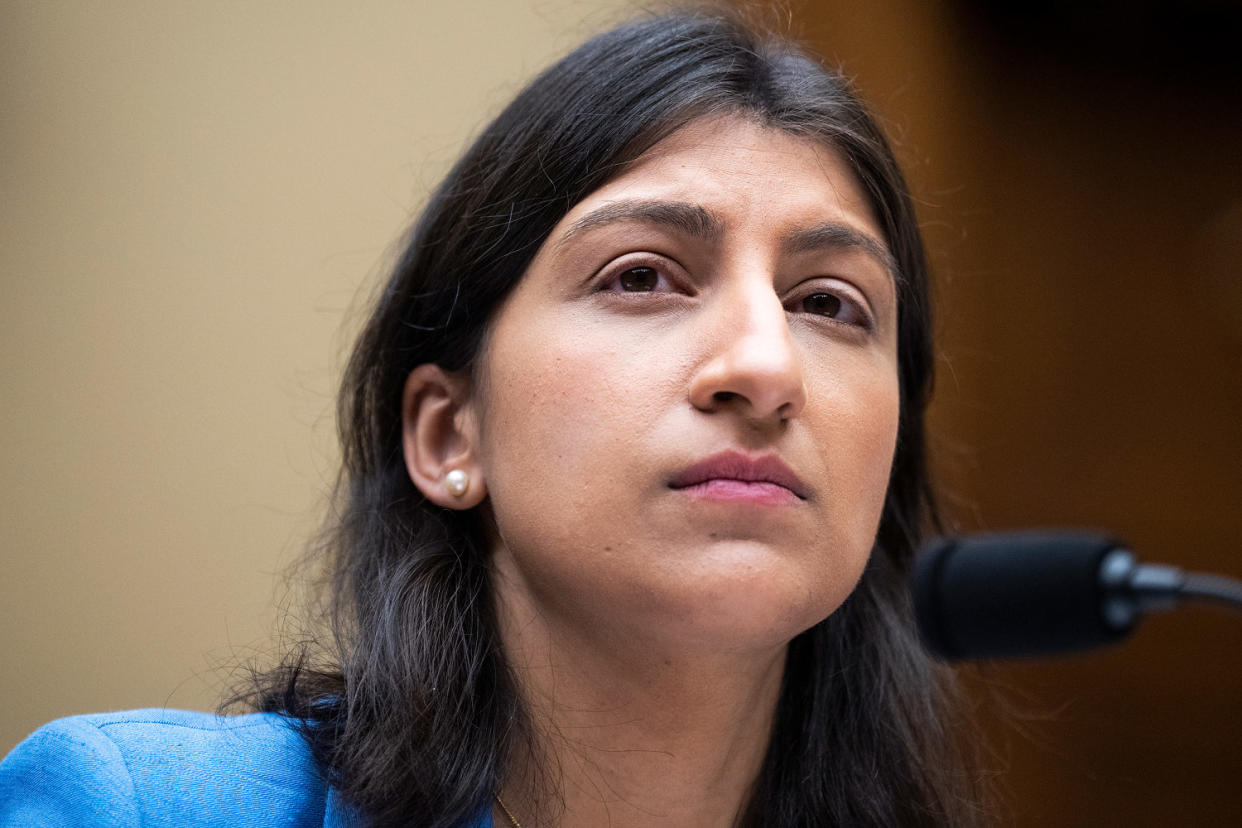
The Federal Trade Commission voted unanimously on Wednesday to ban marketers from using fake reviews – such as those generated using AI technology – and other deceptive practices to promote their products and services.
All five FTC commissioners voted to adopt the final rule, which will take effect 60 days after its publication in the Federal Register, the government’s official catalog of rules and notices.
Typically, the rules are published within days of their passage, meaning consumers can expect the FTC’s fake reviews ban to take effect in mid-October.
“Fake reviews not only waste people’s time and money, they also pollute the market and put honest competitors out of business,” FTC Chair Lina Khan said in a statement.
In addition to banning reviews from being written by non-humans, the FTC rules prohibit companies from paying for positive or negative reviews to falsely promote or disparage a product. They also prohibit marketers from exaggerating their own influence, for example by paying for bots to boost their follower count.
Violations of the rule could result in fines for each violation, according to the regulation. This means that for an e-commerce site with hundreds of thousands of reviews, the penalties for fake or manipulated reviews can quickly add up.
With the rise of e-commerce, influencer marketing and generative AI, more and more advertisers are turning to automated chatbots like ChatGPT to quickly generate user reviews for products sold on online platforms.
The result: Consumers sometimes buy items based on false advertising or misleading promises.
Fake reviews are already illegal and some e-commerce companies have taken steps to crack down on this deceptive marketing practice.
Amazon, for example, sued over 10,000 Facebook group administrators in July 2022 for distributing fake reviews.
Amazon did not immediately respond to CNBC’s request for comment on the FTC’s new rule.
Under the FTC’s new rule, companies that may have been self-regulating in the past are now subject to stricter government oversight.
Rather than pursuing individual cases through the Department of Justice, this rule will streamline and strengthen the FTC’s ability to enforce the ban internally.
The announcement came on the same day as the White House’s first-ever Creator Economy Conference, where Biden administration officials hosted 100 online influencers and digital content professionals to hear their concerns about the industry.

